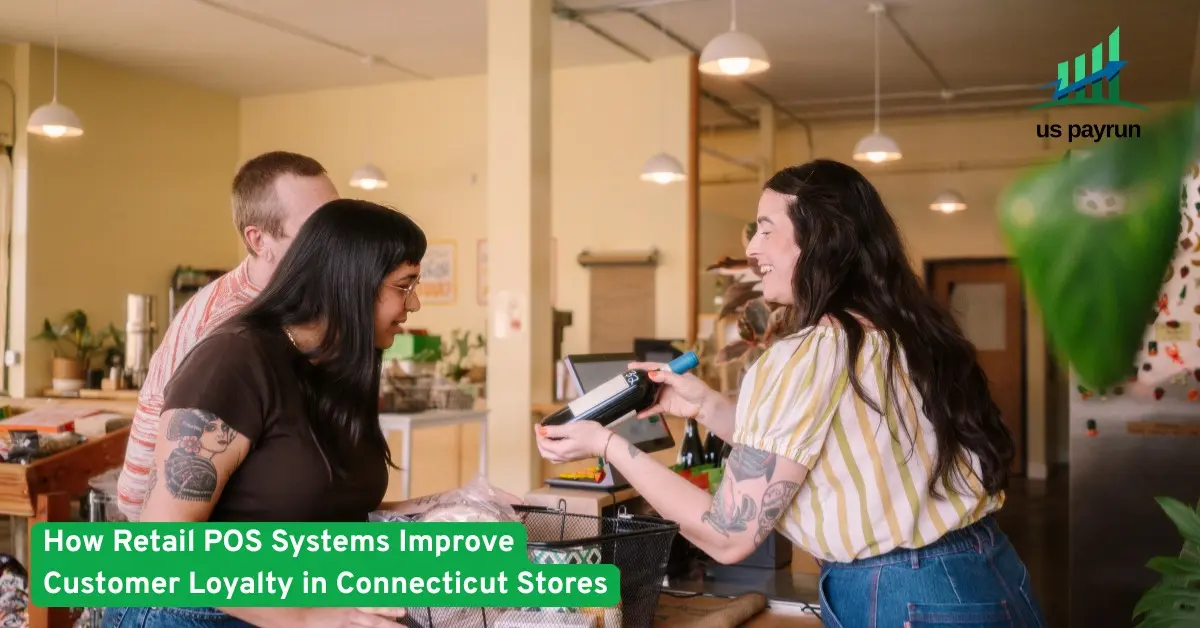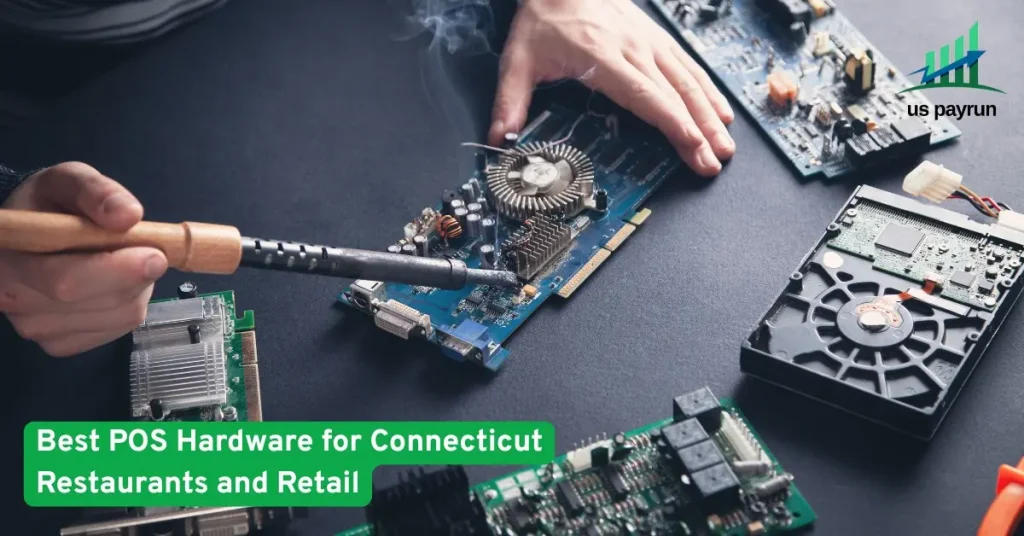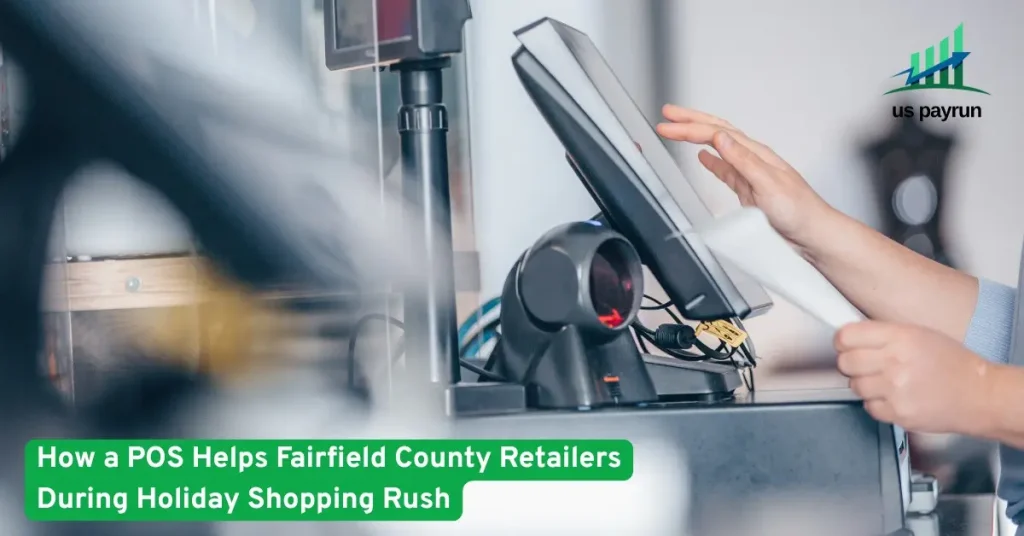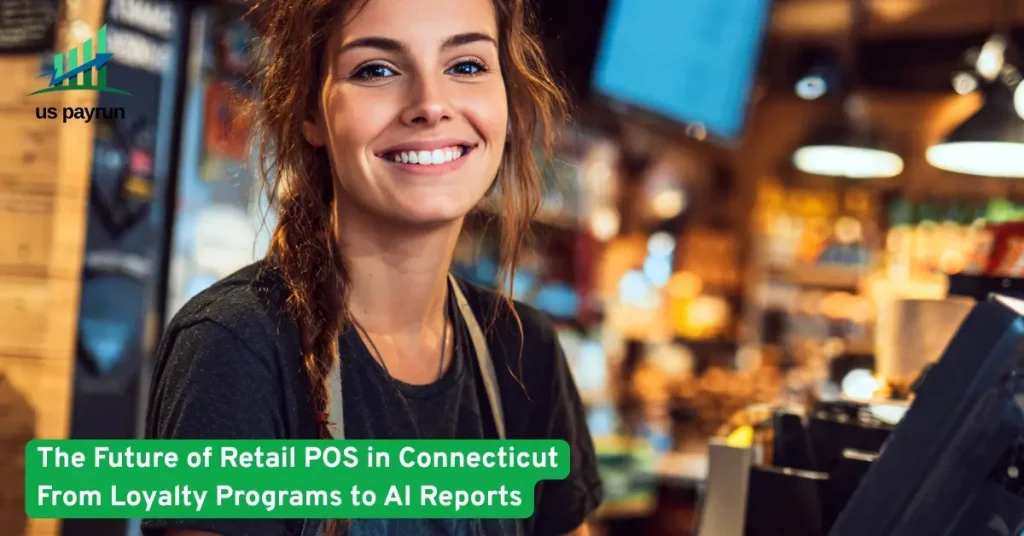
In today’s competitive retail environment, businesses are constantly looking for ways to improve customer loyalty. One of the most effective ways to do this is by leveraging modern retail POS systems. These systems do much more than process transactions—they provide valuable insights and tools that can directly influence customer satisfaction and retention. Studies show that 70% of customers are more likely to return to a store that offers a loyalty program, making how retail POS systems improve customer loyalty in Connecticut stores a critical consideration for businesses.
How POS Systems Work to Build Customer Loyalty
Retail POS systems are designed to handle far more than just processing payments. They enable businesses to gather important customer data and implement strategies that encourage repeat visits. Here’s how they contribute to customer loyalty in Connecticut stores:
1. Seamless Integration of Loyalty Programs
Modern retail POS systems seamlessly integrate with loyalty programs, allowing businesses to automatically reward customers for their purchases. This integration means that loyalty points, discounts, and rewards are applied instantly, giving customers immediate value for their continued business. By offering rewards directly through the POS system, you make it easier for customers to feel appreciated and more likely to return.
Instant Gratification: Customers love earning rewards instantly at checkout, which encourages them to come back for future purchases.
Data-driven Rewards: POS systems allow businesses to create personalized loyalty programs based on customer behavior, increasing engagement and satisfaction.
2. Personalized Customer Experience
POS systems collect a wealth of data, including purchase history, preferences, and frequency of visits. This allows businesses to personalize interactions, offering tailored recommendations, promotions, and exclusive deals that resonate with individual customers. A personalized experience helps customers feel valued and understood, which is a major driver of customer loyalty.
Personalized Promotions: POS data allows stores to send tailored offers or discounts based on customer preferences, making promotions more appealing.
Customer Segmentation: Businesses can segment customers by spending habits, preferences, and purchase history, allowing for targeted marketing campaigns.
3. Streamlined Checkout Process
A key factor in customer satisfaction is the checkout experience. Long lines and slow service can frustrate customers, driving them to competitors. Modern POS systems speed up transactions, making checkout quicker and more efficient. This results in a more positive experience, encouraging customers to return and recommend the store to others.
Faster Transactions: With features like barcode scanning and mobile payment processing, POS systems ensure customers don’t waste time waiting in line.
Improved Accuracy: The accuracy of modern POS systems minimizes human error, ensuring a smoother, hassle-free experience.
4. Real-Time Inventory Management
Out-of-stock items are a major frustration for customers. A modern POS system connects to inventory management, providing real-time updates on product availability. If an item is out of stock, the system can automatically notify the customer or offer to order it online. This helps maintain customer trust and satisfaction by ensuring they can always get what they want, when they need it.
Avoid Stockouts: POS systems alert store managers to low stock levels so they can replenish before running out.
Omnichannel Integration: Customers can check product availability in-store or online, providing a seamless shopping experience.
5. Enhanced Communication Channels
POS systems can integrate with email, SMS, or loyalty apps, enabling businesses to maintain communication with their customers. Businesses can notify customers of promotions, new product arrivals, or special discounts, keeping them engaged and more likely to return. Regular communication helps reinforce the relationship and strengthens brand loyalty.
Direct Engagement: With POS-integrated communication, businesses can engage customers with personalized messages.
Building Trust: Consistent, timely communication helps establish trust and encourages repeat business.
Why Choose US Payrun for Your POS System Needs?
At US Payrun, we specialize in providing cutting-edge retail POS systems tailored to the unique needs of businesses in Connecticut. We offer a range of features designed to improve customer loyalty, increase operational efficiency, and simplify store management. Here’s why US Payrun is your ideal partner for retail POS solutions:
Tailored Solutions: We provide POS systems that are customized to fit the specific needs of your store, whether you’re in retail, hospitality, or another industry.
Customer-Centric Features: Our POS systems come with integrated loyalty programs, personalized marketing tools, and real-time data analytics that help build lasting customer relationships.
Expert Support: From setup to training and ongoing support, our team is here to ensure your POS system runs smoothly and meets your goals.
Affordable Pricing: We offer competitive, transparent pricing to ensure that your business gets the best value from your POS investment.
Choose US Payrun to provide your Connecticut store with the tools needed to enhance customer loyalty and boost your bottom line.
Frequently Asked Questions (FAQs)
How can a POS system improve customer loyalty?
A POS system builds customer loyalty by offering integrated loyalty programs, personalized promotions, and a faster, more accurate checkout experience.
What are the benefits of integrating a loyalty program into my POS system?
Integrating a loyalty program allows you to automatically reward customers for their purchases, encourage repeat visits, and collect valuable customer data.
Can a POS system personalize the customer experience?
Yes, POS systems can track purchase history and preferences, allowing businesses to offer personalized discounts, recommendations, and promotions that resonate with individual customers.
How does a POS system help with inventory management?
Modern POS systems track inventory in real-time, alerting businesses when stock levels are low and allowing customers to check availability in-store or online.
Are POS systems easy to use for small businesses?
Absolutely. POS systems are designed to be user-friendly, and with our comprehensive training and support, even small business owners can easily manage their operations.
How do POS systems improve the checkout experience?
POS systems streamline the checkout process with barcode scanning, mobile payments, and automated transaction processing, reducing wait times and improving efficiency.
Can POS systems integrate with other retail software?
Yes, POS systems can seamlessly integrate with other software, such as CRM, email marketing, and accounting tools, providing a comprehensive solution for your business.
Enhance Customer Loyalty with a Modern POS System
How retail POS systems improve customer loyalty in Connecticut stores is no longer a question but a proven solution for businesses aiming to enhance their customer experience. By leveraging integrated loyalty programs, real-time inventory tracking, and personalized marketing, Connecticut retailers can turn casual shoppers into loyal patrons.
Ready to Boost Your Customer Loyalty?
At US Payrun, we offer customized POS solutions that are perfect for your Connecticut store. Contact us today to find out how we can help you build a loyal customer base and streamline your retail operations. Let’s work together to make your store a local favorite!



